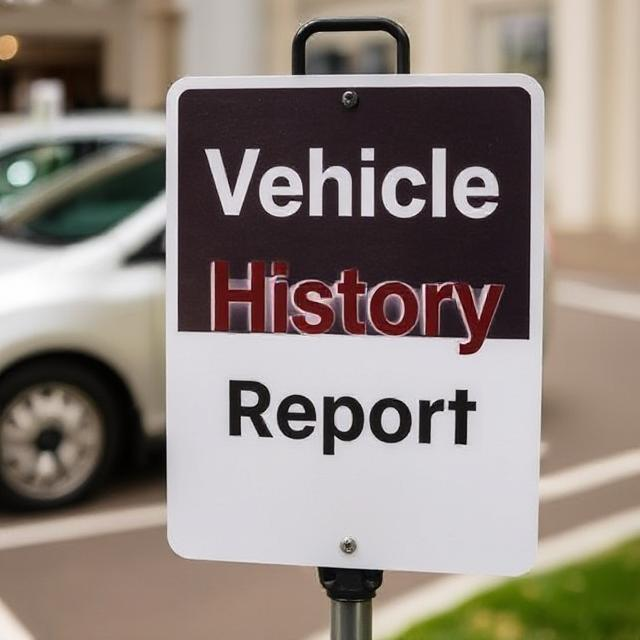The Importance of Obtaining a Vehicle History Report Before Purchasing a Used Car
Purchasing a used vehicle in the United States can be a practical way to save money while acquiring reliable transportation. However, it’s essential to approach such a purchase with due diligence to ensure you’re making an informed decision. One critical step in this process is obtaining a comprehensive Vehicle History Report (VHR) using the Vehicle Identification Number (VIN). This report provides valuable insights into the vehicle’s past, helping you avoid potential pitfalls.
Understanding the Vehicle History Report (VHR)
A Vehicle History Report is a document that offers a detailed account of a vehicle’s past, compiled from various sources such as insurance companies, repair shops, and the Department of Motor Vehicles (DMV). The report typically includes information on:
-
Accident History: Details of any reported accidents, including dates and severity.
-
Title Status: Information on title brands like salvage, junk, or flood damage.
-
Odometer Readings: Verification of mileage to detect any discrepancies.
-
Ownership Records: A record of previous owners and the duration of ownership.
-
Service and Maintenance Records: Documentation of routine maintenance and any major repairs.
Accessing a VHR is crucial as it helps you assess the vehicle’s condition and anticipate potential future issues. Check free Vehicle History Report(VHR)click here.
Why Is It Crucial to Obtain a VHR Before Purchasing a Used Car?
-
Accident and Damage Verification:
-
A VHR reveals if the vehicle has been involved in any accidents, providing insights into the extent of damage and the quality of repairs performed. This information is vital for assessing the vehicle’s current structural integrity and safety.
-
-
Title and Ownership Clarity:
-
The report clarifies the vehicle’s title status, ensuring there are no legal issues such as liens or disputes. It also offers a glimpse into the vehicle’s ownership history, which can indicate how well the car has been cared for.
-
-
Odometer Accuracy:
-
By examining the odometer readings over time, a VHR helps detect any inconsistencies that might suggest odometer tampering, ensuring you’re not overpaying for a vehicle that has been misrepresented.
-
-
Service and Maintenance Insight:
-
Access to maintenance records allows you to understand the vehicle’s service history, highlighting any recurring issues or confirming consistent upkeep, which can influence your decision and potential maintenance costs.
-
How to Obtain a Free Vehicle History Report Using the VIN
Obtaining a Vehicle History Report is straightforward and can be done at no cost. Here’s how:
-
Locate the VIN:
-
The Vehicle Identification Number (VIN) is a unique 17-character code assigned to every motor vehicle. You can find the VIN in several locations on the vehicle:
-
On the dashboard, near the windshield on the driver’s side.
-
On the driver’s side door frame, typically on a sticker or metal plate.
-
On the vehicle’s title, registration, or insurance documents.
-
-
-
Use a Free Online VIN Check Service:
-
There are several reputable online platforms that offer free VIN checks, providing comprehensive vehicle history reports. One such service is VinCheckUp.
-
-
Enter the VIN:
-
Visit the chosen website and enter the VIN in the designated search field.
-
-
Review the Report:
-
After processing, the website will generate a report detailing the vehicle’s history, including accident records, title status, and more.
-
Additional Tips for Purchasing a Used Car
-
Physical Inspection: Always conduct a thorough physical inspection of the vehicle, checking for signs of wear, rust, or any inconsistencies that might not be listed in the report.
-
Professional Evaluation: Consider hiring a trusted mechanic to inspect the vehicle, providing an expert assessment of its mechanical condition.
-
Test Drive: Taking the car for a test drive allows you to evaluate its performance, handling, and comfort, ensuring it meets your expectations.
-
Verify Documentation: Ensure that all necessary documents, including the title, registration, and maintenance records, are available and legitimate, confirming the vehicle’s authenticity and legal standing.
Conclusion
Obtaining a Vehicle History Report using the VIN is an essential step in the used car buying process. It provides transparency regarding the vehicle’s past, helping you make an informed decision and avoid potential issues. By combining the insights from the report with a thorough physical inspection and professional evaluation, you can confidently navigate the used car market and find a vehicle that offers reliability and value.
Know more about buying a used car click here.
